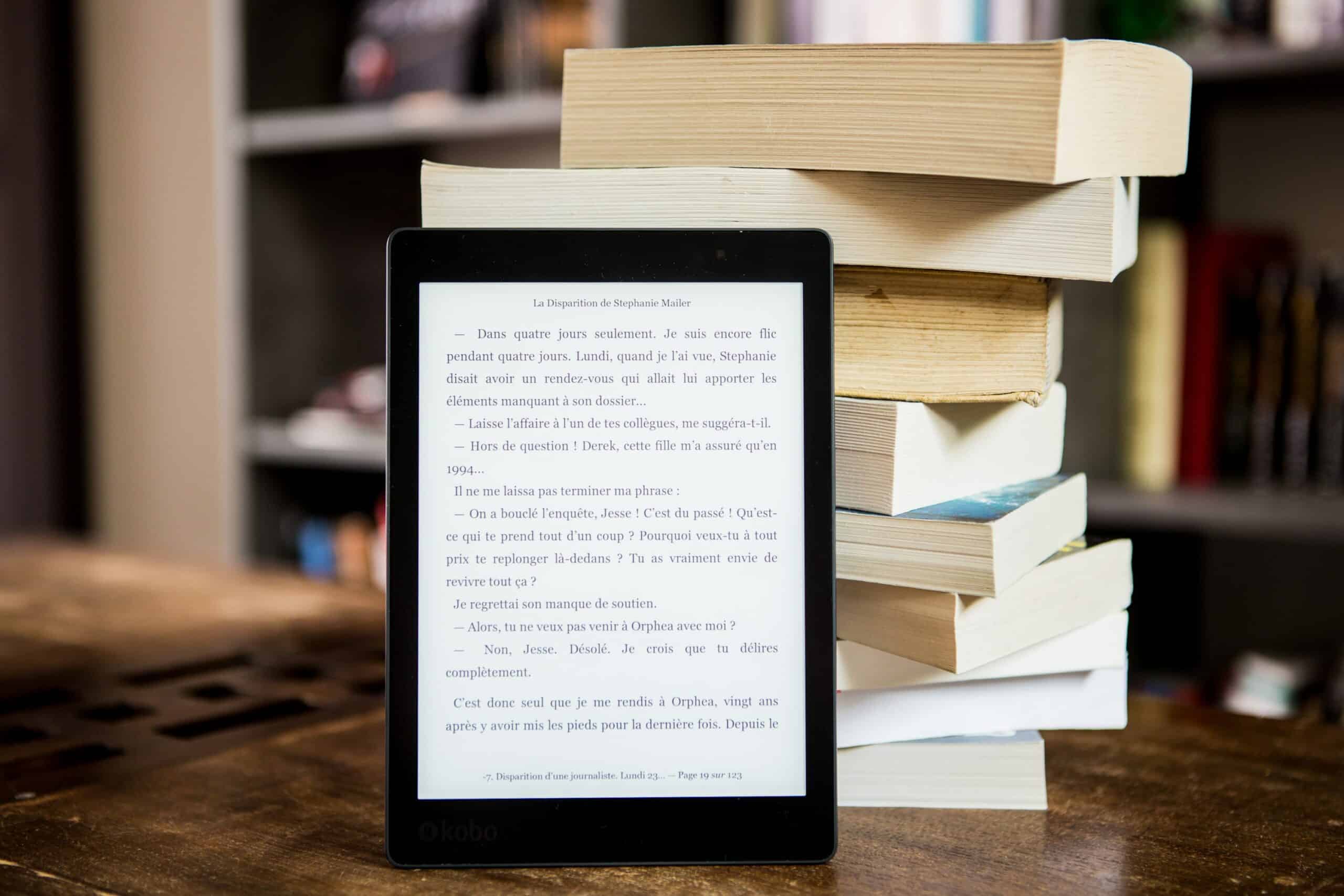
Print Books Are Here to Stay
People love to prophesize the demise of print books, but print books are here to stay.
In 1897, news began to circulate that Mark Twain was dead or dying somewhere in London. To which, Twain notably quipped: “The reports of my death are greatly exaggerated.”
I’d say the same about the death of print books.
In the early 2000s and 2010s, the popularity of the e-book seemed to be on track to outpace print book sales. Many thought it marked the end of print books. But e-book sales never took off quite as predicted. And now, the new rising star is the audiobook.
But will digital books ever replace print?
I predict that they will not.
Trends show the print book is very much alive. Not only do people prefer print books 3 to 1, (the Pew Research Center found that 65% of adults prefer print books), when I ask folks why they like to read print books more than eBooks, they speak of how they like the feel of holding the book in their hands, the smell of the paper, and that it provides a break from the seemingly inescapable screen time of our daily work life.
I’ve identified three other reasons that print books will endure: accessibility, privacy, and reading a print book is better for your health.
Accessibility
In 2019, I leased a new car, and was dismayed to discover that it had no CD player. I could no longer listen to my favorite educational CD set, God Works Through Faith, annotated by high performance coach, David Neagle.
It had been in my car for 8 or 9 years, and I listened to it often. But with the newer model Rogue, the CD player was gone, and now my favorite CD set is collecting dust on a shelf in my basement.
Odds are good that you’ve had a similar experience. If it wasn’t a CD, maybe it was a cassette tape, or an 8-track, or before that, your favorite vinyl records.
The same thing happens with films. When they were little, my kids watched movies on VHS tapes, which morphed into DVDs, which morphed into Blu-Ray and digital files. I still have boxes of DVDs (also buried in the basement), but even if I could find them, I no longer own a DVD player.
What’s Not to Love?
With all these formats, planned obsolesce often means that the ability to access the content disappears with the newest iteration of technology.
Books on paper, on the other hand, have been around for approximately 5000 years.
Perhaps you’ve heard of the Dead Sea Scrolls? Though they were written somewhere between 2nd century BCE and 1st century CE, and we still have the accessibility to read them today.
Books from thousands of years ago have staying power that is unmatched by any other medium. Not only can we still read them, we still cite them in modern works today. (Making books the only medium to date where the creator truly becomes immortal.)
For instance, in his latest book, Eat to Beat Your Diet, my client, Dr. William W. Li, includes the latest cutting-edge science on fat and health, and he references a 400-year-old text that dates back to 1614: Ars de statica medicina by Santorio Santorio.
Privacy
Anything you access on the internet is tracked. Everything. From what clothes you buy to which websites you visit – that data exists and can be used against you. Companies buy data to understand consumer buying habits and target ads to draw you in.
That includes all the books you have bought (or even looked at) on the internet.
Now, before you accuse me of being paranoid, recall that people have been persecuted for reading certain material. Who is to say it can’t happen again?
Okay – I might be acting a little paranoid and pessimistic – but the fact remains that privacy is a growing concern in the modern age of data tracking.
One nice thing about print books is that you can walk into a brick-and-mortar bookstore, purchase a book with cash, and no one need ever know what you’re reading. So, if you don’t want Big Brother privy to your reading list, print books provide the only remaining safe haven. (This is also a way you can support independent bookstores!)
A Print Book a Day Keeps the Doctor Away
That’s right! Reading print books is better for your health than e-books!
If you’re like me, and you spend the majority of your day (sometimes 12+ hours) looking at a screen, then the last thing you want to do at night is look at another screen.
Excessive screen time is not only hard on our eyes, it also affects our brain chemistry.
Exposure to the blue light that comes from our screens can lead to eye fatigue, headaches, and blurry vision. Even my Kindle Paperwhite, which has the “flat white” effect, just doesn’t give me the relief that I need at the end of a long day.
Light emitting e-Readers of any kind also reduce your body’s melatonin production. Not only does this make it harder to fall asleep, some studies suggest that low levels of melatonin increase your risk for disease, such as breast cancer.
The Bottom Line is This:
Unlike music and film, e-books have yet to eclipse books in their original format—print. While digitized versions offer some conveniences that print books lack, print books are here to stay.
